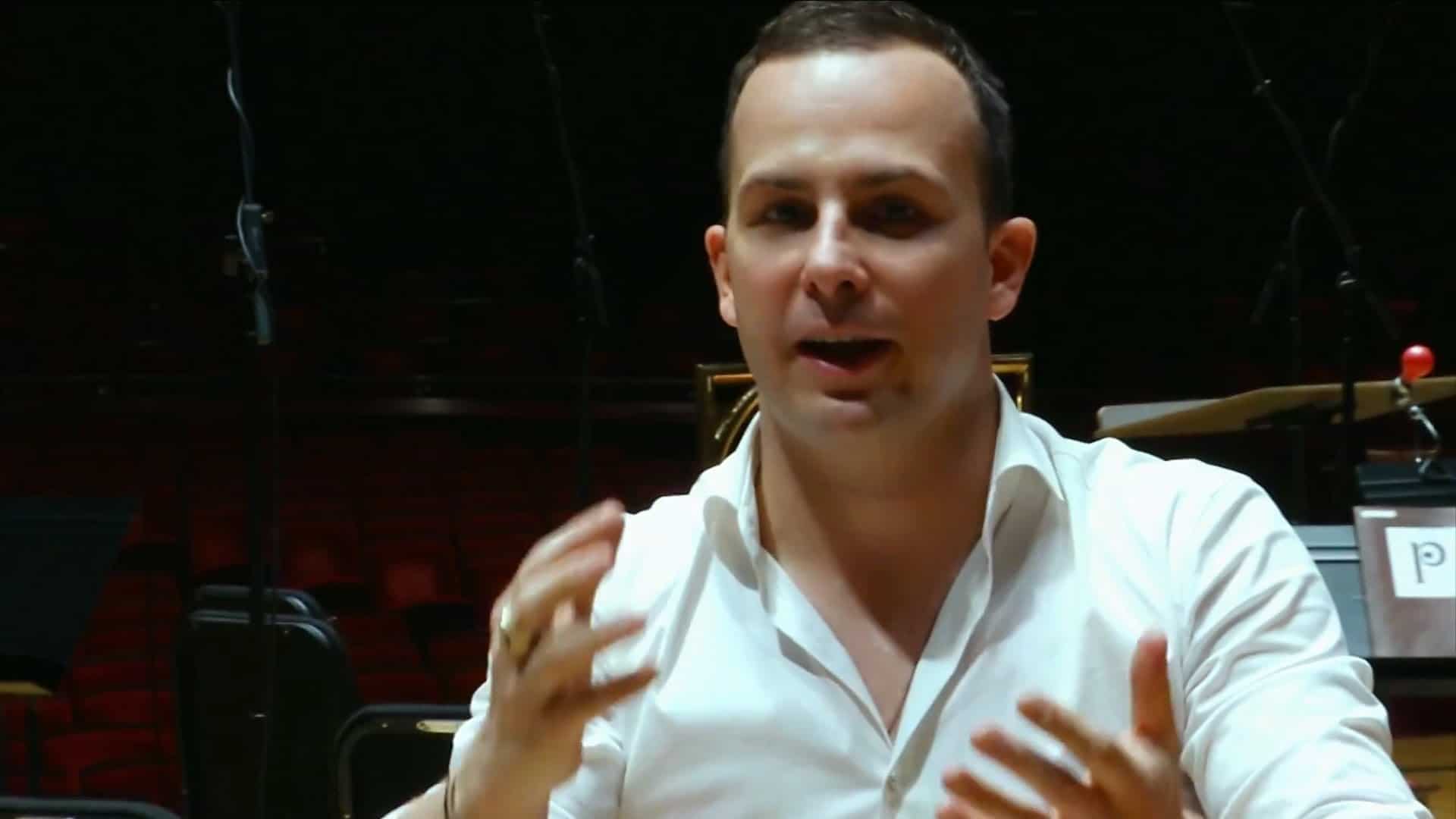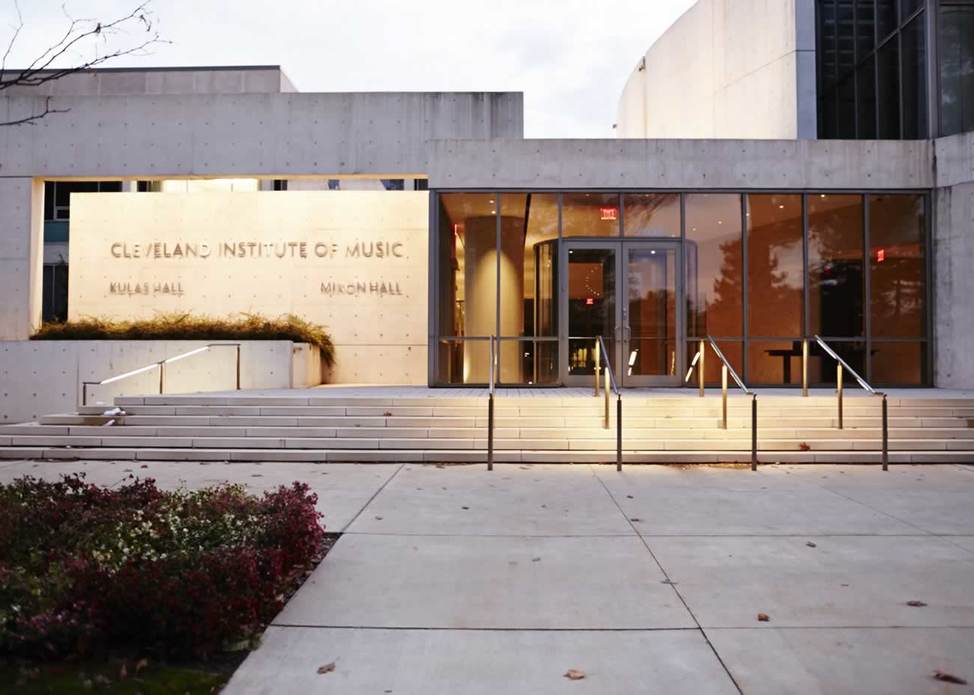Met signs non-unique Yannick as music director
mainTo no surprise at all, the Metropolitan Opera has just announced Yannick Nézet-Séguin as its next music director.
As we foretold, the incoming music director will not take up his duties until 2020-21, leaving the company in an uncomfortable state of interregnum.
Even more complicated, Yannick let it be known today that he has renewed with the Philadelphia Orchestra until 2025-26, an exceptionally long contract and one which seems to declare that his first loyalty is with Philly.
And there is no suggestion of the Montreal maestro giving up his association with his hometown Orchestre Métropolitain.
All of which indicates that the Met has replaced a unique music director, James Levine, with a younger man who is not available for several years to come and whose affinities will often lie elsewhere.
Not a great deal.

UPDATE: The panic over Yannick.
Typically, the Met released the news first through its press office, the New York Times, which followed up with a choreographed hallelujah by Zachary Woolf, describing his body art and life partner.
A press release followed a while later:
New York, NY (June 2, 2016) – The Metropolitan Opera announced that the acclaimed conductor Yannick Nézet-Séguin will be the company’s new Music Director. The position has previously been held by only two artists in the company’s storied 133-year history—James Levine, who after 40 years in the position stepped down at the end of the recently concluded season to become the company’s first Music Director Emeritus, and Rafael Kubelik, who held the title briefly in the company’s 1973-74 season.
In the Met’s 2017-18 season, Nézet-Séguin will assume the interim title of Music Director Designate. He will become Music Director in the 2020-21 season, the first season in which he is available to take over the full responsibilities of the position. However, he will immediately become involved in the company’s artistic planning, which happens many years in advance. As Music Director, Nézet-Séguin will be responsible for the overall musical quality of the Met. He will have artistic authority over the company’s orchestra, chorus, and music staff, and will work in tandem with Met General Manager Peter Gelb to oversee the planning and casting of each Met season, including repertoire choices, new productions (including the selection of creative teams), revivals, and commissions.
Nézet-Séguin will initially conduct five different operas each season he is Music Director, as well as concerts with the Met Orchestra. In each of the seasons in which he is Music Director Designate, Nézet-Séguin will conduct two operas. Next season at the Met, he will conduct his first Wagner opera with the company, a revival of Der Fliegende Holländer. “Becoming the Music Director of the Metropolitan Opera is the fulfillment of a lifelong dream for me,” said Nézet-Séguin. “I am truly honored and humbled by the opportunity to succeed the legendary James Levine and to work with the extraordinary orchestra, chorus, and staff of what I believe is the greatest opera company in the world. I will make it my mission to passionately preserve the highest artistic standards while imagining a new, bright future for our art form.”
“Yannick was the clear choice of the Company,” said Gelb. “He is the right artist at the right time to lead us forward into a new and what I believe will be a glorious chapter in the history of the Met.”
“The Metropolitan Opera has been the great artistic love of my life, and it has been tremendously rewarding to see the company develop and improve over the past 45 years,” said Levine. “I offer my heartfelt congratulations to Yannick on taking the musical reins, and I look forward to seeing the good work continue under his watch.”
“The MET Orchestra enjoys a tremendously fruitful, positive relationship with Maestro Nézet-Séguin, and we are delighted in his appointment as Music Director,” said Jessica Phillips, clarinetist and chair of the Met’s Orchestra committee. “He embodies the artistic leadership, musical excellence, and respect for rich tradition that opera lovers around the world have come to cherish. We eagerly look forward to working together to shape this new era at the Met.”
“The singers and stage performers at the Met welcome Yannick Nézet-Séguin, joining the historic line of artists from James Levine’s great tenure back to Toscanini and Mahler,” said David Frye, tenor and chair of the Met’s chorus committee. “Yannick has led great performances with the company, and we’re eager to expand our collaboration.”
Nézet-Séguin made his Met debut in the 2009-10 season, conducting a new production of Bizet’s Carmen. He has returned in every subsequent season, leading acclaimed performances of Verdi’s Don Carlo, Gounod’s Faust, Verdi’s La Traviata, and Dvořák’s Rusalka. He led the opening night performance of the Met’s 2015-16 season, a new production of Verdi’s Otello.
Nézet-Séguin’s operatic career was launched when he was appointed Chorus Master and Assistant Conductor of the Montreal Opera at age 23. Since then, he has conducted a wide breadth of repertoire at a number of the leading companies, including the Vienna State Opera; the Royal Opera House, Covent Garden; La Scala; Dutch National Opera; and the Salzburg Festival, in addition to the Met. He is also a frequent guest conductor of the Berlin Philharmonic, the Vienna Philharmonic, the Bavarian Radio Symphony Orchestra, the London Philharmonic, and the Chamber Orchestra of Europe.
Since 2012, Nézet-Séguin has been Music Director of the Philadelphia Orchestra, which announced today that he has extended his contract with them through 2025-26. (A separate press release on that announcement is available.) Given the close proximity of New York and Philadelphia, Nézet-Séguin will be able to easily commute between his two posts, and the Met and the Philadelphia Orchestra will also be exploring the possibilities for artistic collaboration between the two institutions.
He is also the Music Director of Montreal’s Orchestre Métropolitain and of the Rotterdam Philharmonic, a position he will resign at the conclusion of the 2017-18 season.






Nézet-Séguin spends ca. 6-10 weeks in Montreal, as the OM is not full-time. As for an “exclusive” MD with Levine, he had the BSO and the Munich Phil. Perhaps, also, given the disaster of the over-reliance on Levine, the MET is keen not to have someone who takes on as much as Levine did?
What this signals is that YNS is settling in the North-East America region, and probably cutting his travelling in Europe. As he has had issues with over-stretching himself, that seems a sensible move.
Levine’s tenure prevented any alternative readings of his “core” repertorium for years. No one else was heard in Wagner for instance. Clearly not a good thing, to say the least!
Emil, Yannick said that in so many words in the Philadelphia Inquirer article:
“So I made the choice to be a very much Northeast American.”
http://www.philly.com/philly/entertainment/music/classical/20160603_Yannick_Nzet-Sguin_gets_Met_job__will_also_stay_as_Phila__Orchestra_director.html
Please let us know if Le Devoir, La Presse, or the Montreal Gazette have anything interesting to say about this news.
Christophe Huss, from Le Devoir, publishes an exclusive interview today: http://www.ledevoir.com/culture/musique/472504/nezet-seguin-capitaine
Among other highlights: YNS wants to stay in NY as long as possible, but wants to be careful not to stay too long (he says that’s his principle with all postings). He doesn’t know what links he’ll keep with the Orchestre Métropolitain after 2021, but promises to always keep a link with them.
In 2017, he’s doing Fliegende Holländer. In 2017-2018, his next two operas will be Germanic. He wants two main things for the orchestra: 1) work in a “symphonic” spirit to give the orchestra a new “direction”, as many musicians arrived after Levine’s illness, and 2) cultivate Levine’s close attention to the stage and the singers. He wants more world premieres at the MET, and, most interestingly, does not restrict himself to the building of the MET Opera House: he’s willing to think about going on tour and about doing chamber operas (Britten is mentioned) on another stage.
Is Nezet Seguin a good fit for the MET Opera Young Artist Development Program? That is arguably one of James Levine’s greatest legacies, along with raising the orchestra to world class standards.
When Levine’s retirement was announced, the Met said that he would stay on as director of the Lindemann young artists program. That was near-universally greeted as good news: it’s a job he seems physically able to continue doing, and he’s considered extremely good at it.
Mistake to have him lead the Met Orchestra concerts.
So when is Gelb resigning?
For those thinking YNS will be overstretched, keep in mind that the supposedly monogamous Levine in his heyday was also MD of Ravinia, conducted regularly in Berlin and Vienna, and also at Salzburg and Bayreuth. OK, much of that was in summer, but overall he spent a decent amount of time on non-MET activities. Also, Levine years ago often came under criticism for a relative lack of other A-list conductors at the MET. He (probably truthfully) denied that he blocked other big conductors, but it does seem that the quality and stature of conductors at the MET has improved in recent years, to some degree at the same time that Levine of necessity scaled back his activity.
Unbelievable how many no-name conductors waved their arms in front of the Met Orchestra over the last 40 years — all of them dutifully ignored by the musicians who just played on as Levine had drilled them to do.
Gergiev is a no-name?
Referring more to the 80s, pre-Gergiev. Of course there were some big-name conductors – including Klieber, Leinsdorf, and others, and of course great but smaller names like Manuel Rosenthal or Nello Santi. But these days you have the likes of Salonen, Rattle, YNS, and other A-list names leading productions.
I think over-long musical tenures make for boring repertoire and standardized performances. The Met should have made succession plans years ago.
Holly, that’s been discussed for a long time now.
Levine did not want to go – even now, in his condition, and still less ten or twenty years ago. And for the Board to have forced him out would have been an enormous PR disaster.
Levine had to be shaken loose – and what it took, in the end, was an open discussion of the details of Levine’s health in The New York Times, with what amounted to a public warning, before the entire world, that Levine and his doctors had one more chance to show that he could maintain enough control over his body to conduct properly or he would be retired, like it or not.
Norman, there most certainly is a suggestion of Yannick giving up his association with his hometown Orchestre Métropolitain. He addressed the question directly in the article on this news in the Philadelphia Inquirer:
“As for the rest of my activities, I can imagine this will be reduced,” he said. His tenure as music director of the Rotterdam Philharmonic Orchestra ends in 2018. “I will keep a minimal presence in Montréal until 2020-21, this is when my actual contract is up with Orchestre Métropolitain, and my guest-conducting in Europe will be sensibly reduced. Just select dates in Berlin, Vienna, and Munich, and that’s pretty much it.”
Peter Dobrin’s article really is very good, with a lot more material than Michael Cooper’s in the NYT. I’m surprised you didn’t cite it already.
http://www.philly.com/philly/entertainment/music/classical/20160603_Yannick_Nzet-Sguin_gets_Met_job__will_also_stay_as_Phila__Orchestra_director.html
(By the way, the Times and the Inquirer broke the news at the same time.)
This is a great appointment and not a poor deal – yet another click bait and not a real opinion based on any full understanding (ref poor and inaccurate reporting of his Montreal contract here).
Bravo Maestro Yannick, Good choice Met – youth (with expertise and experience) plus STAR quality and media savvy!
I, for one, am sick and tired of this “jet-set” conductor business that started with Mehta, Muti, Abbado, Eschenbach, and the rest of that crowd, and continued with Nelsons, Nézet-Séquin, etc. There is a plethora of first rate (and for this case the Met, American) conductors left wanting because these organisations “have to have” these mediocre hot shots, who do nothing but make cookie cutter, ultra-homogenised, ultra-pasteurised music. How about finding some one who will actually BE THERE to make the serious artistic decisions and guide the ensemble into being a unique organisation again? Say what you will about Ormandy, Szell, Steinberg, Bernstein, Karajan, et al, they at least moulded those organisations into unique sounding orchestras.
Levine may have been a “jet setter” to a certain extent, but his heart was always with the Met first and foremost which is why he revitalised its orchestra and made it the world class ensemble it is.
This sounds like another stupid decision my Peter Gelb. I wonder if Robert Lepage had anything to do with this deal. I can’t believe that Yannick is not available until 2020 – 2021. Who will be the musical director in the meantime? This sounds like a smoke screen to me to coverup the ultimate decision to close the doors and revamp the building. Just ask Eric Gautron former Ex Machina and Metropolitan Opera Technical director. Coincidentally Eric was hired during tech of the new Robert Lepage Ring Cycle and worked his way up thru the ranks to Technical Director only to resign a few month ago to work at Glyndebourne UK. I believe that he saw the handwriting on the wall.
This proves my point from an older reply. I believe that the Metropolitan Opera will lock out it’s employees in the next few years.
I believe that Mr. Gelb knows exactly what he is doing. There has been many rumors that the Met needs to shut down for a couple of years to revamp the building and backstage area to keep up with the times. In fact they have a 60 million dollar + budget to do just that. I believe that the ultimate goal is to bankrupt the current business model rip up the current contracts close the doors for a few years and start over with a clean slate. This will allow the Met to move ahead with the planned renovations without having to pay the backstage employees during this process. The truth of the matter is that the Orchestra and Chorus have two years left under the current contracts and the Stagehands have three. It has been stated by several Met employees that the Met has been trying to reinterpret the current contracts with all of the unions. A day does not go by without some new argument of how the current contracts are worded and should be paid. In fact the Met hired a lawyer for several thousand dollars a day to do just that. The new normal is to argue the wording of the contracts and pay wages the way they interpret them not the way they are written and have been paid since the begining of inception. The next step involves filing a grievence and calling a meeting between the Met and the concerned Unions and of course the Met’s high priced lawyer. This process can take up to three consecutive meetings with no solution causing tension between employees and management. I strongly believe that in two years when the Orchestra and Chorus’s contracts are up there will be a repeat of the labor dispute of two years ago and a lockout will happen. This will allow the Met to move forward with the planned renovations without having to pay the current backstage employees.
Well, that would be more or less a replay of what the Minnesota Orchestra did. It was a disaster for them, and I’d think that the entire classical music business in the U.S. knows it.
Makes perfect sense to me.